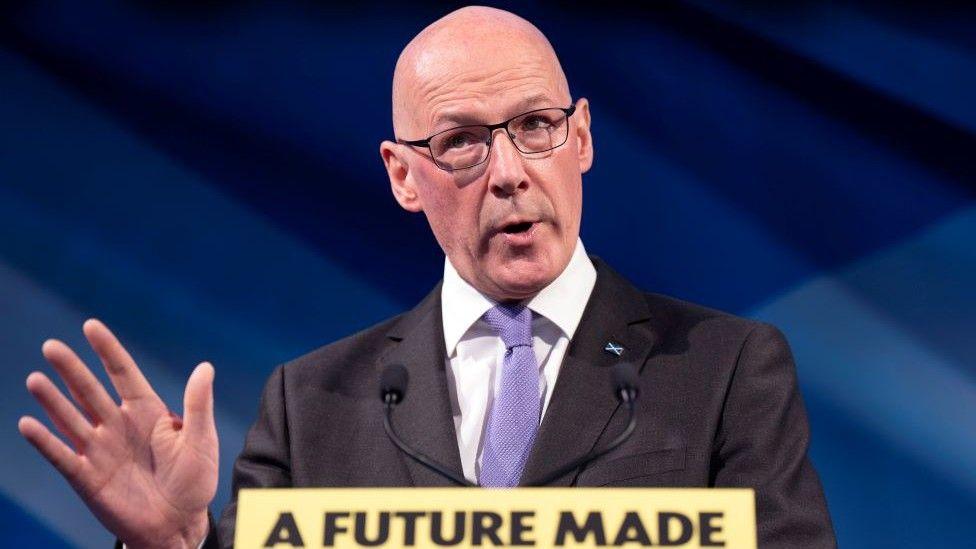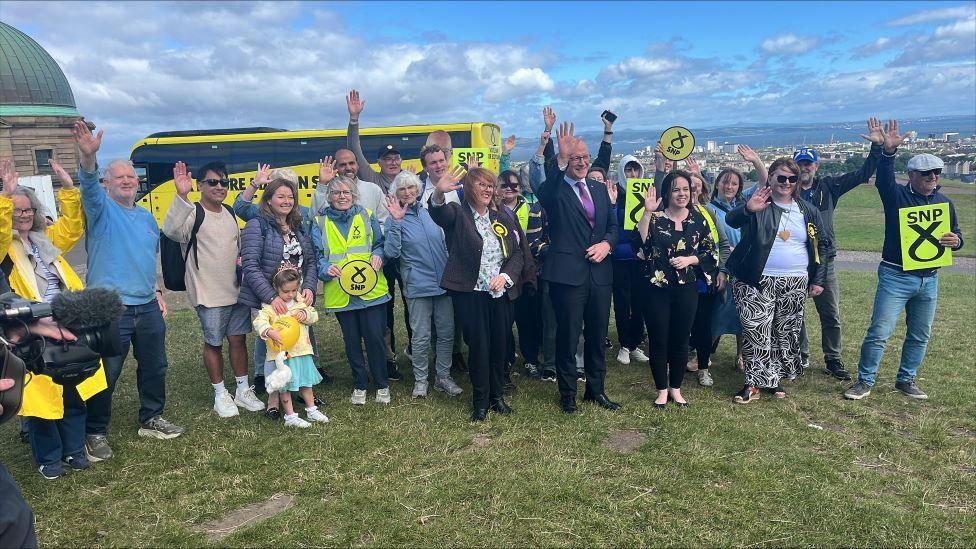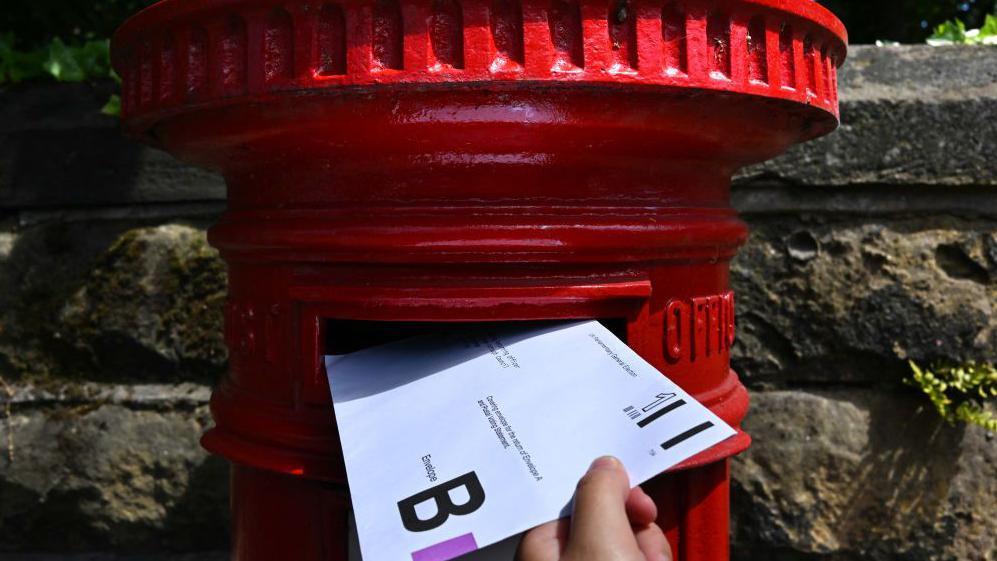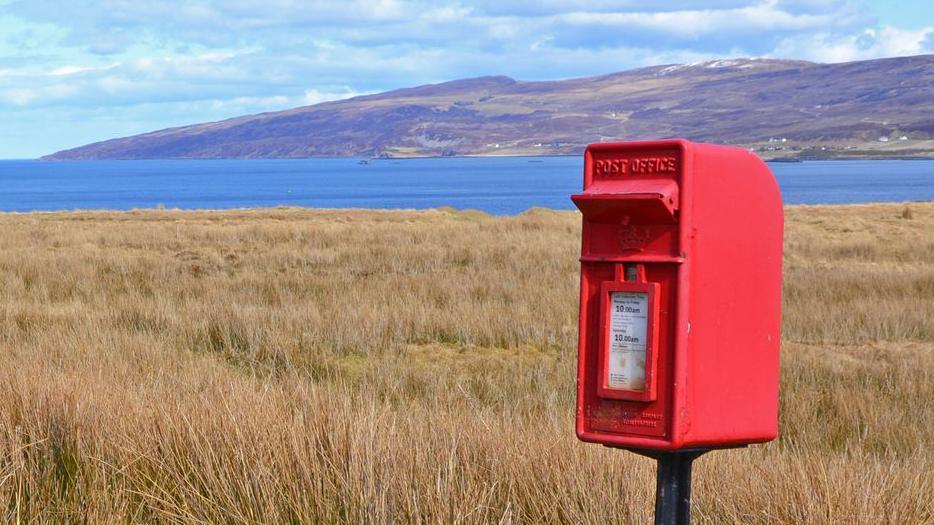Swinney fears postal vote problems could affect election results

- Published
SNP leader John Swinney has warned that closely-fought election contests could be affected because some voters have have not received their postal votes.
A number of voters have told BBC Scotland News that they have not received their ballot papers prior to going away on holiday.
The first minister said that he was "very concerned" that tight contests could hinge on voters who had been "disenfranchised" by the problems.
He said the issue showed he was correct to raise concerns over the 4 July timing of the election when Scottish school holidays have begun and many voters are away.
He told Good Morning Scotland: "Just as I feared we would be, people leaving Scotland on their holidays had applied for postal votes and they haven't got them through. It's not in any way, shape or form a surprise to me that is the case.
"It's a deeply unacceptable situation that people in Scotland will be disfranchised because the calling of the election has been done at a time which is quite inconvenient for a lot of people."

John Swinney launched the SNP's final week of campaigning
On Friday City of Edinburgh Council announced it had opened an "emergency" voting facility at the city chambers, where voters still waiting for postal votes could have their voting pack re-issued or cast their vote on the spot, in privacy.
The first minister said an estimated 25% of people in Scotland would vote by post and that he believed there would be a high number of "very close contests".
He cited tight races in the 2017 general election such as Perth and North Perthshire where the margin was 21 votes and North East Fife where the winner was just two votes ahead of the second-placed candidate.
Mr Swinney added: "Individual votes count very, very significantly.
"I am troubled by what's happening with the postal ballot because in an election where there will be a number of marginal contests in Scotland, I'm worried that people will be left disenfranchised."
The Electoral Management Board for Scotland warned on Thursday that there had been "many difficulties experienced with the delivery of postal votes".
A number of Scottish councils confirmed delays in ballots being received by voters, including Edinburgh, Fife and West Lothian.
Perth and Kinross Council stated on social media it felt "a comprehensive review of capacity and systems is necessary after the election".
Royal Mail said it had investigated concerns over the delivery of postal votes in some areas but had found no backlogs in any of its offices in Scotland.
Many councils have been sending out postal ballots in tranches, with people who applied after 7 June having to wait longer before the ballot packs are despatched.
Get in touch
Have you received your postal vote in time? Share your experience.
'Clear mandate'
Mr Swinney also said on the programme that it was "crystal clear" the best way to resolve debate over Scottish independence would be to hold another referendum on the matter.
He was asked whether a failure to secure a majority of seats in the general election would be a signal from voters that the issue should not be pressed until the next Scottish elections in 2026.
Mr Swinney replied that 2021 Holyrood elections had provided a "clear mandate" for a second referendum, but that the Westminster government had "folded its arms and refused to engage".
He said: "That is to deny democracy. I just think it would be healthy for our democracy if the United Kingdom government would actually engage, and enable the right of the people of Scotland to determine their own constitutional future."
He said he would look to take forward the controversial gender recognition bill in the event of there being an incoming Labour government but he insisted the "safety of women and girls" would be "at the heart" of his decision-making.

The Scottish Parliament legislation was blocked by Conservative government at Westminster using a Section 35 order on grounds that it would interfere with the operation of the UK-wide Equality Act.
The first minister was speaking ahead of the SNP launching its "battle bus" during the final week of campaigning for parties.
Elsewhere in Scotland on Friday, the deputy Labour leader Angela Rayner attended a rally for Labour’s New Deal for Working People in Hamilton.
Ms Rayner insisted the party's commitment to improve workers' rights was "personal" and recalled how as a single parent, the only job she could get was on a zero hours contract in the care sector.
Scottish Conservatives leader Douglas Ross hit the campaign trail in Peterhead, where he visited an offshore supply base and a seafood company.
Scottish Liberal Democrats leader Alex Cole-Hamilton was in New Sefton to highlight the extent of sewage dumping in Scotland.
And Scottish Greens co-convenor Patrick Harvie traveled to Strathaven where he met with a climate action community organisation.
Related topics
- Published27 June 2024

- Published26 June 2024
